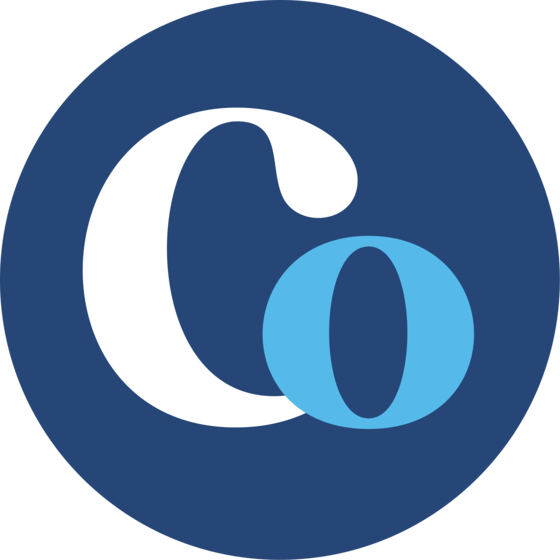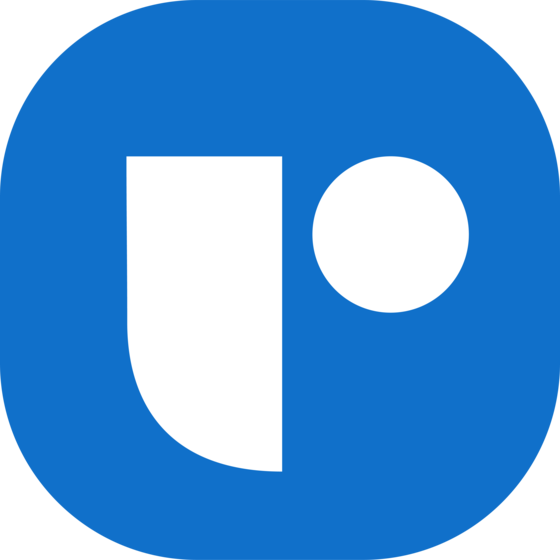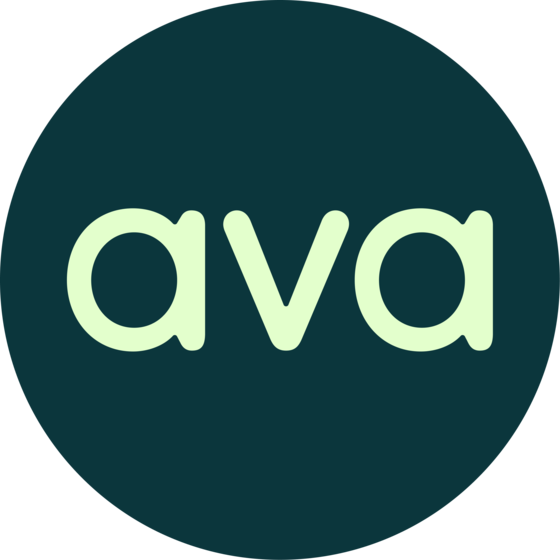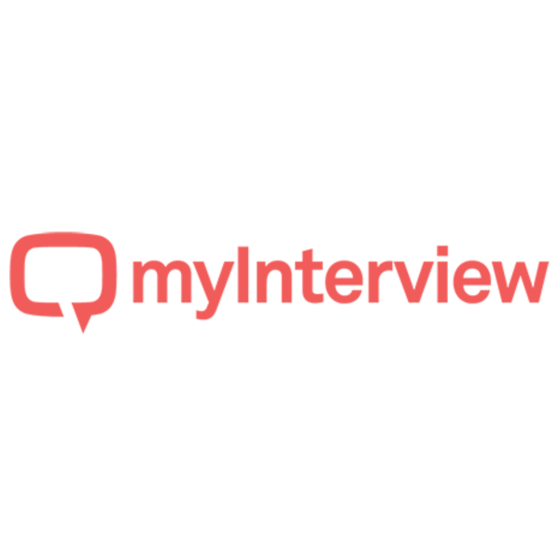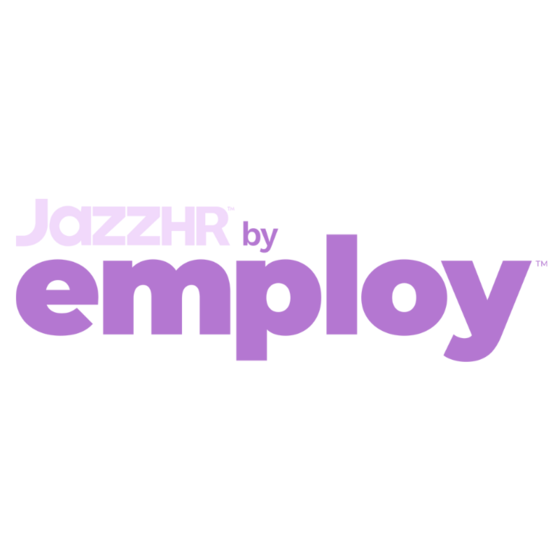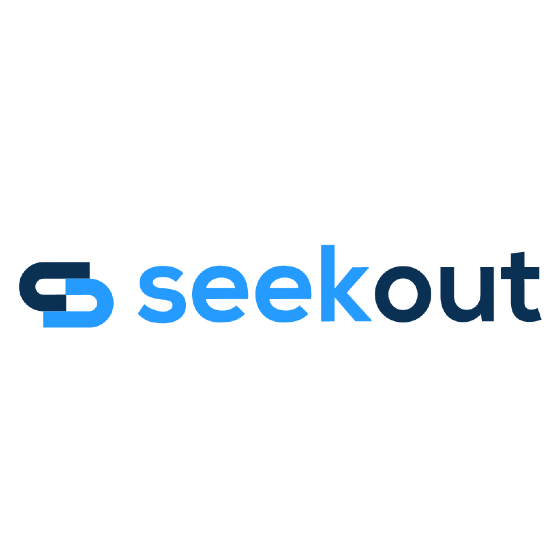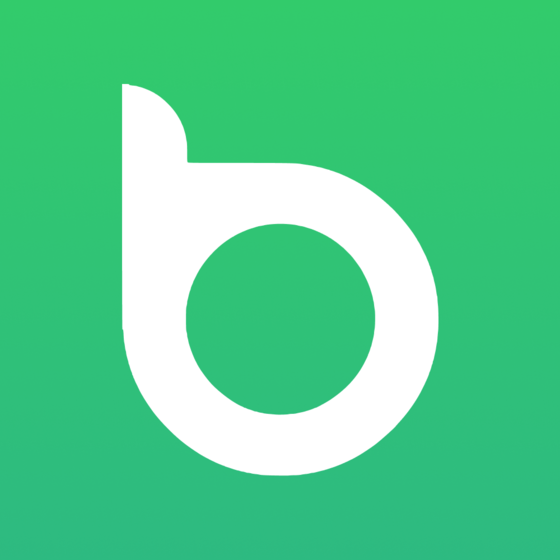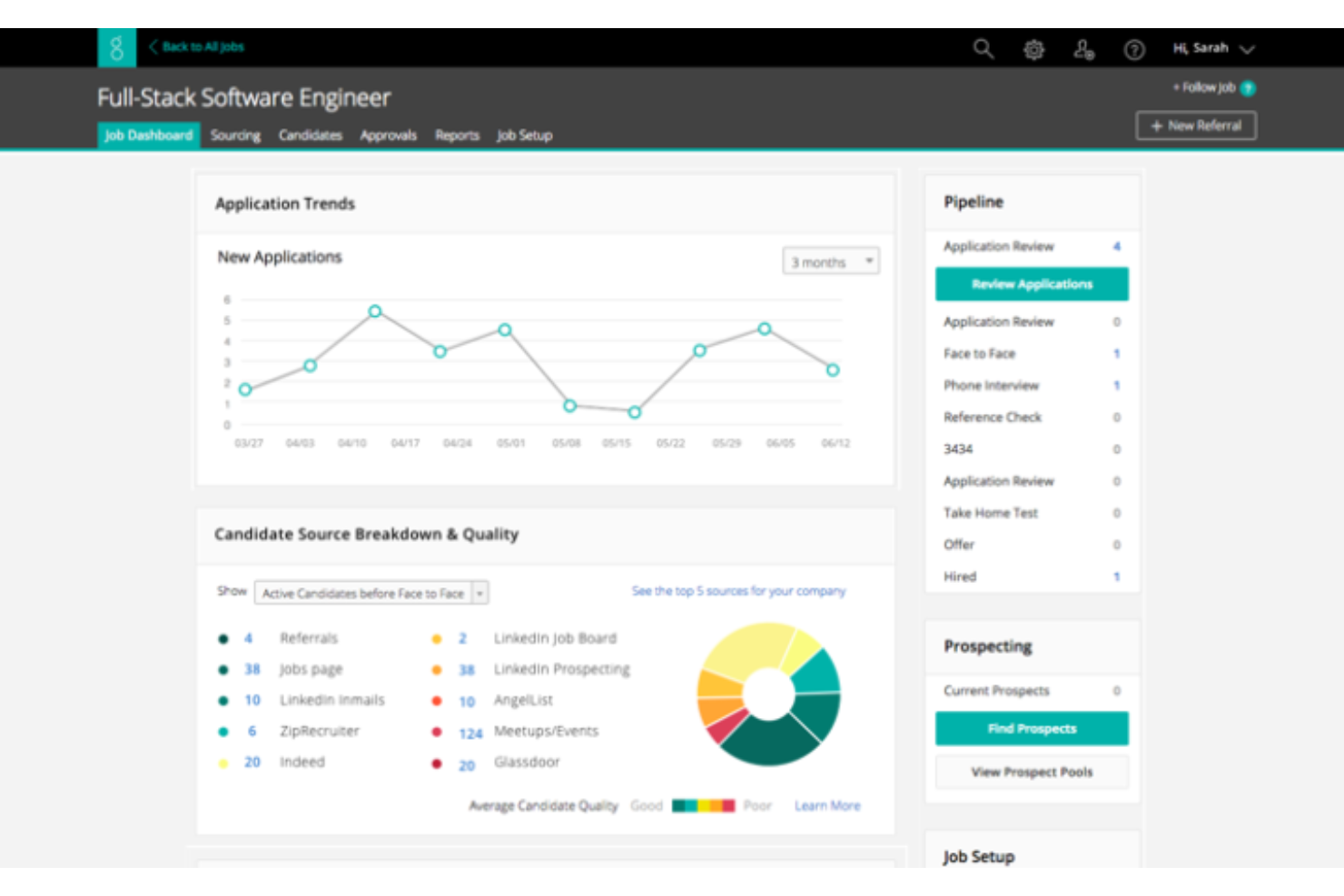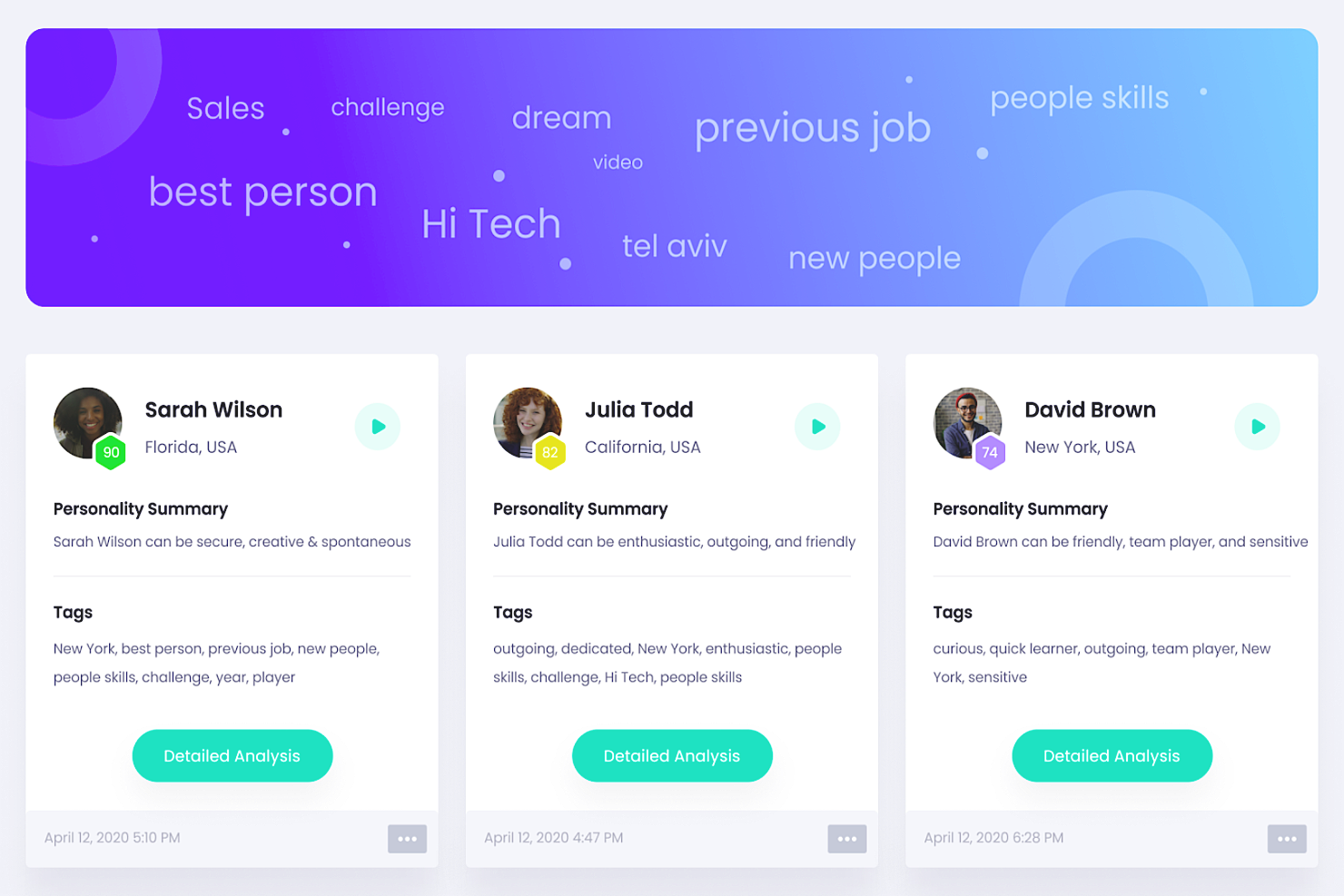10 Best Recruitment Automation Software Shortlist
Here's my pick of the 10 best software from the 20 tools reviewed.
Talk through what you’re looking for. Get a custom shortlist based on your needs. No fees.
Almost every business process is ripe for automation and recruitment is no exception.
Many recruiters get bogged down in repetitive tasks, such as screening candidates or communication, which consume valuable time and can negatively impact the candidate experience.
Recruitment automation software can take care of many of these tasks, freeing up recruitment team's time and creating a more efficient and effective recruitment process.
To help you find the best solution for you, I've put together this list of the best recruitment automation software based on their ability to reduce time-consuming tasks, improve hiring consistency, eliminate bias, and manage high volumes of applicants.
Why Trust Our Software Reviews
We've been testing and reviewing HR software since 2019. As HR professionals ourselves, we know how critical and difficult it is to make the right decision when selecting software.
We invest in deep research to help our audience make better software purchasing decisions. We've tested more than 2,000 tools for different HR use cases and written over 1,000 comprehensive software reviews. Learn how we stay transparent, and take a look at our software review methodology.
Best Recruitment Automation Software: Pricing Comparison Chart
This comparison chart summarizes pricing details for my top recruitment automation software selections to help you find the best software for your budget and business needs.
| Tool | Best For | Trial Info | Price | ||
|---|---|---|---|---|---|
| 1 | Best for conducting anonymized candidate evaluation | Free demo available | Pricing upon request | Website | |
| 2 | Best for automated candidate sourcing across multiple channels | 15-day free trial + free demo | From $169/month, with up to 20 seats | Website | |
| 3 | Best recruitment automation software for frictionless recruitment experiences | Free demo available | Pricing upon request | Website | |
| 4 | Best recruitment automation software for candidate recommendations | 14-day free trial | From $15/user/month | Website | |
| 5 | Best for its robust applicant tracking system | Free trial available | From $84/user/month | Website | |
| 6 | Best for companies under 150 employees | 7-day free trial | From $89/month | Website | |
| 7 | Best for automatically screening candidates using recorded video interviews | Free demo available | Pricing upon request | Website | |
| 8 | Best for human-powered hiring support | Free demo available | From $249/month | Website | |
| 9 | Best for customizable recruiting solutions | 14-day free trial | From $75/month | Website | |
| 10 | Best for healthcare companies | 14-day free trial + free demo | Pricing upon request | Website |
-

edays
Visit WebsiteThis is an aggregated rating for this tool including ratings from Crozdesk users and ratings from other sites.4.3 -

Boon
Visit WebsiteThis is an aggregated rating for this tool including ratings from Crozdesk users and ratings from other sites.4.7 -

ClearCompany
Visit WebsiteThis is an aggregated rating for this tool including ratings from Crozdesk users and ratings from other sites.4.6
Best Recruitment Automation Software Reviews
Here are my detailed summaries of the best recruitment automation software that made it into my top 10 list, including notes on why I picked them. Each review offers a detailed look at the key features, pros & cons, integrations, and ideal use cases of each system to help you find the best tool for you.
Greenhouse is a comprehensive recruitment software that helps companies of all sizes build their talent pools and nurture candidates throughout the hiring process.
Why I picked Greenhouse: Your recruitment team can use the software to build a large, organized talent pool. The platform allows you to evaluate candidates anonymously, helping to reduce bias in the recruitment process. You can also create customized interview scorecards in the platform, to help ensure you evaluate applicants in a way that's uniform and fair.
Candidate data can be stored in the system, allowing you to better manage and personalize your outreach and engagement messaging through the hiring process. You can also track, measure, and report on your recruitment process OKRs and KPIs. The software development team is well-versed in recruiting best practices, so much that they even published a book on the subject, so you can rest assured it's built with care and expertise.
Greenhouse Standout Features and Integrations
Features include diversity hiring, interview scorecards, candidate nurturing, a career page, pipeline management, automated sourcing, and applicant tracking.
Integrations include BambooHR, Bob, Calendly, DocuSign, Eightfold, Gem, GoodHire, HackerRank, LinkedIn Recruiter, Namely, and others.
Pros and cons
Pros:
- "Essential" (basic) plan offers good value for small businesses
- Track diversity, equity, and inclusion (DEI) metrics and mitigate unconscious bias
- Customer onboarding included in all plans
Cons:
- Pricing details are not transparent
- Business intelligence tools exclusive to the top-tier paid plan
New Product Updates from Greenhouse
AI-Assisted Interview Plans by Greenhouse
Greenhouse now offers AI-assisted interview plans to efficiently hire candidates by auto-filling scorecards with relevant skills, generating tailored interview questions, and transforming notes into polished evaluations. More details at Greenhouse.
Best for automated candidate sourcing across multiple channels
As one of the world’s most popular recruiting and HR systems, Workable can help automate many aspects of workforce management beyond recruitment.
Why I picked Workable: I like Workable's ability to automate job postings across multiple job boards and social media platforms, ensuring maximum reach with minimal effort. Additionally, the platform's automated candidate sourcing tools help identify and engage potential candidates from various channels, significantly reducing the time and effort required to find the right talent.
I also appreciate Workable's powerful applicant tracking system (ATS). The ATS automates many aspects of candidate management, such as resume parsing, candidate scoring, and workflow management. Furthermore, the platform offers automated email templates and scheduling tools to help improve communication and coordination with candidates.
Workable Standout Features and Integrations
One of Workable's standout features is its passive candidate search functionality. It crawls social media platforms and creates detailed candidate profiles, that include email addresses and social links, so you can contact highly skilled individuals directly. In addition, their automation features make it ideal for businesses trying to source the best candidates with specific skill sets, such as those operating in tech or SaaS.
Integrations include LinkedIn, Indeed, Google Calendar, Slack, Microsoft Outlook, Zapier, BambooHR, Greenhouse, Zoom, Asana, Trello, DocuSign, G Suite, Office 365, Monster, Facebook, Twitter, Glassdoor, and more.
Pros and cons
Pros:
- Reports and analytics for the recruitment process
- Ability to track everything in a candidate's profile
- Easy-to-use interface
Cons:
- Pricing may be costly for smaller businesses
- Initial setup can be complex, especially with data migration
New Product Updates from Workable Recruiting
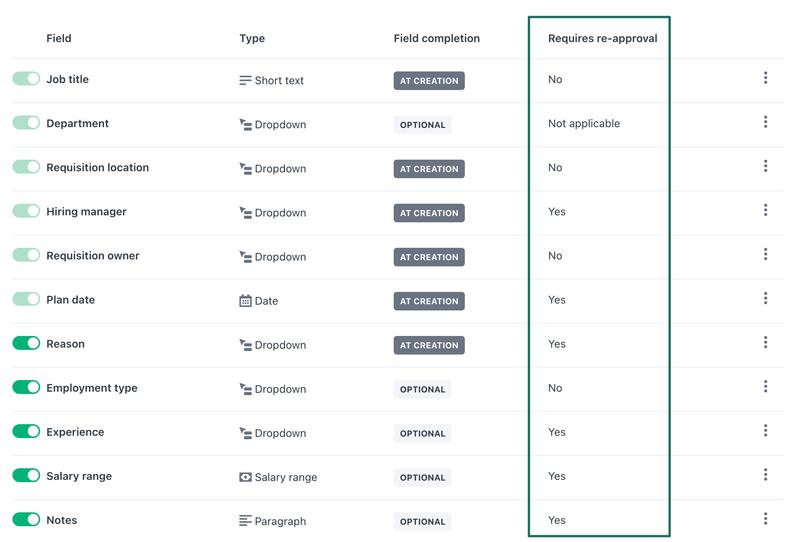
Direct Editing Access in Workable’s Hiring Plan
HR admins can now update filled requisitions directly in Workable’s Hiring Plan, editing fields like fill date and salary to ensure compliance and accurate reporting. For more details, visit Workable's updates.
Best recruitment automation software for frictionless recruitment experiences
ClearCompany’s easy-to-use recruiting software is designed to give hiring teams the tools they need to rapidly attract and hire the right talent
Why I picked ClearCompany: I appreciate the many time-saving automations their platform includes, for example interview scheduling workflows and the ability to expedite the candidate communication via automated emails or pre-built text recruiting campaigns. When combined, these features can help hiring teams accelerate their hiring process and identify top talent faster.
ClearCompany Standout Features & Integrations
Features include AI-assisted job description writing and automation workflows for interview scheduling and candidate screening and grading.
Integrations include absorb, ADP, BambooHR, BountyJobs, Ceridian, Checkr, DocuFree, erin, and HireRight.
Pros and cons
Pros:
- Numerous automations and AI-backed enhancements
- Customizable candidate comparisons
- Helpful goal-tracking and alignment tools
Cons:
- The user interface looks a bit out-dated
- No Boolean search
Manatal
Best recruitment automation software for candidate recommendations
Manatal is an AI-driven recruitment software designed to help HR teams, recruitment agencies, and headhunters source and hire candidates faster.
Why I picked Manatal: Manatal features plenty of automations to help find candidates faster, including advanced social media recruitment tools like a Chrome extension for importing LinkedIn profiles and sharing your roles from your careers page across platforms like Facebook, WhatsApp, WeChat, and Line.
Manatal Standout Features and Integrations
Features include the candidate matching tool that scans your job descriptions and extracts the skills and requirements your new employees should have. Based on this information, the solution’s AI cross-references your talent pool to identify the top candidates for each job and gives you tailored recommendations.
Integrations include Career Builder, Facebook, Google Calendar, Indeed, LinkedIn, Microsoft Outlook, Seek, WeChat, WhatsApp, ZipRecruiter, and others.
Pros and cons
Pros:
- The Kanban board enables you to see the status of each open position with ease
- Allows you to create an unlimited number of multi-stage recruitment pipelines
- Easy to generate detailed reports on your hiring efforts
Cons:
- Career pages can’t be translated into multiple languages
- Archived candidate profiles cannot be unarchived in the same search sequence
Recruit CRM combines the functionalities of a CRM with an ATS, making it an excellent choice for high-volume recruiters or recruitment agencies.
Why I picked Recruit CRM: The power here lies in the customizability of the automatons. For example, you can create your own 'recipes' or automated workflows such as automatically moving data from one tool to another.
There are a lot of possibilities here such as candidate follow-ups, interview scheduling, and data entry, to improve efficiency and accuracy in your recruitment process.
Recruit CRM Standout Features and Integrations
Features Include their unique ‘time machine’ feature allowing you to create workflows that apply to past records that will let you update your recruitment database retroactively without the need to set up new workflows for older entries.
Integrations are available to a wide range of applications through Zapier.
Pros and cons
Pros:
- CRM/ATS integration
- Database can be customized
- Useful Chrome extension
Cons:
- Can be slow
- No chatbot
New Product Updates from Recruit CRM
New Features For Agency Recruiters
Recruit CRM has launched new features for agency recruiters, including trend analysis dashboards, customizable analytics, and no-code workflows, to predict revenue dips and maintain financial stability. For more details, visit Recruit CRM Product Updates.
AvaHR is a hiring software developed to improve the recruitment process for businesses with less than 150 employees.
Why I picked AvaHR: It can automate away many routine tasks like posting jobs to different jobs boards, sending follow-up emails, or updating candidate statuses. This ensures consistent communication with applicants and keeps your hiring process moving smoothly.
Additionally, the pipeline stage triggers allow you to set specific actions that occur when a candidate reaches a certain stage in the hiring process, such as scheduling interviews or sending offer letters.
AvaHR Standout Features and Integrations
Features include real-time recruiting analytics with automated reports to help you track and improve your hiring process and built-in eSignatures so candidates can receive and sign their offer letters electronically without having to print and sign manually.
Integrations include Slack, Asana, Google Sheets, Constant Contact, Salesforce, HubSpot, BambooHR, Gusto, Google Analytics, DocuSign, and Zoom.
Pros and cons
Pros:
- More job posting visibility with over 50 job boards
- Automated candidate management
- Customizable career pages
Cons:
- Could offer better analytics features
- Limited customization for larger organizations
Best for automatically screening candidates using recorded video interviews
myInterview is a cloud-based video interviewing platform that helps HR departments, recruiters, and hiring managers save time by automating the candidate screening process.
Why I picked myInterview: Their video interviewing feature eliminates the need to schedule phone screenings and face-to-face interviews, saving recruiters lots of time and resources. Instead, recruiters can send an invitation email to candidates, asking them to log in and respond to pre-recorded interview questions that can be customized for each open position..
myInterview Standout Features and Integrations
Other features include the platform's machine learning algorithm that helps HR professionals filter out unqualified candidates and prioritize top applicants, and their automated shortlisting feature that analyzes the candidate video responses using a searchable word cloud to identify details that match the job criteria.
Integrations are available with applicant tracking systems, though specific systems are not noted. However, they also have an API to support custom integrations as well.
Pros and cons
Pros:
- Automations speed up the 1st and 2nd stage screening processes immensely
- Fully GDPR compliant
- Personalized video introductions create a positive candidate experience
Cons:
- Many advanced features are reserved for their top-level package only
- Could use more native integrations
Wizehire is an online hiring platform designed to help small businesses attract and hire top talent efficiently. It offers tools like automatically posting jobs to multiple boards and candidate evaluation features to enhance the recruitment process.
Why I picked Wizehire: The platform includes automation tools for applicant tracking and management, which help teams efficiently organize and evaluate candidates. There's also the ability to post job ads to over 100 job boards such as Indeed, LinkedIn, and ZipRecruiter with a single click.
Wizehire Standout Features and Integrations
Features include a smart, data-driven recommendation engine to help to identify top candidates who match your role’s requirements.
Integrations include ADP Workforce Now, Checkr, Dropbox Sign, Gusto, Indeed, LinkedIn, QuickBooks, RUN Powered by ADP, Zapier, Salesforce, and HubSpot.
Pros and cons
Pros:
- Ability to post job ads to multiple job boards
- Provides DISC assessments to evaluate candidate fit
- Expert coaching guidance
Cons:
- Many integrations limited to higher-tier plans
- Limited customization options for assessments
JazzHR is a recruiting software solution that offers customizable features to meet the needs of different business sizes and requirements. It's best known for its flexible pricing plans and add-on features, making it an ideal choice for businesses seeking tailored recruiting solutions.
Why I picked JazzHR: The software is designed to be ready to use ‘out of the box’ so you can get up to speed quickly and start recruiting the people you need. You can also take time to customize the solution to your specific needs.
For example, you can build custom automated workflows for each job opening to stay organized and focused, discuss candidates, and keep your hiring team up-to-date with activity streams. The software also eliminates redundant tasks, automatically assigns work, and keeps your processes moving.
JazzHR Standout Features and Integrations
Features include knockout questions to automatically filter out unqualified applicants and the ability to use bulk actions to manage multiple candidates and job listings simultaneously, from emailing to tagging and progressing candidates through your pipeline.
Integrations include ADP, BambooHR, Gusto, Verified First and Checkr.
Pros and cons
Pros:
- Simple initial screening processes
- Quick access to candidate data and notes
- Pre-developed interviewer questions
Cons:
- No task creation option for team members
- Moderate reporting features
SeekOut is a candidate discovery and talent management tool designed to help source hard-to-find talent and build diverse pipeline.
Why I picked SeekOut: SeekOut has the capability to search through over 800 million profiles to match candidates with your roles as well as features to automatically search through and update candidate data in your personal database and employee data within your org.
SeekOut Standout Features and Integrations
Features include the AI-assisted candidate sourcing and engagement tool that generates a targeted search by pulling data from both your job descriptions and the candidate profiles to draft a relevant and personalized message to each candidate.
Integrations include Ascendify, Ashby, Crelate, Gem, Greenhouse, iCIMS, IQTalent, JobDiva, Lever, SAP SuccessFactors, and others.
Pros and cons
Pros:
- Allows you to save search strings and create custom filters
- Proactive support team
- Power filters speed up your talent acquisition process
Cons:
- UI can be a little clunky when performing detailed searches
- Has a learning curve
Other Recruitment Automation Software
Here are a few more worthwhile options that didn’t make the best recruitment automation software list but are still worth considering:
- Fetcher
For AI candidate sourcing
- TalentReef
For candidate communication automations
- Fountain
For high-volume hiring
- Jobvite
For requisition management
- Sense
For candidate engagement
- Gem
For customizable hiring sequences
- Paradox
For mobile-first hiring processes
- Rippling
For recruitment pipeline visibility
- hireEZ
For startups
- Zoho Recruit
For recruitment marketing
Related HR Software Reviews
If you still haven't found what you're looking for here, check out these other related tools that we've tested and evaluated:
- HR Software
- Payroll Software
- Recruiting Software
- Employer of Record Services
- Applicant Tracking Systems
- Workforce Management Software
Selection Criteria for the Best Recruitment Automation Software
Selecting the right recruitment automation software involves a detailed evaluation of its features, usability, and the specific needs it meets within the hiring process. From my experience of trying and researching various tools in this space, it's clear that the best solutions are those that not only address common recruitment challenges but also bring innovative features to the table.
My criteria for evaluating these tools are rooted in their ability to meet user demands effectively. Here's an overview of my methodology:
Core Recruiting Automation Software Functionalities (25% of total score): To be considered for inclusion on my list of the best recruitment automation solutions, the software had to offer these core features first:
- Automated job posting to multiple platforms
- Candidate sourcing and initial screening
- AI-driven candidate matching
- Automated communication for updates and scheduling
- Collaboration tools for hiring teams
Additional Standout Features (25% of total score): To help me find the best software out of numerous available options, I also kept a keen eye out for unique features, including the following:
- Advanced AI algorithms for predictive analytics or to forecast hiring needs
- AI-driven candidate matching tools
- Tools to reduce bias in hiring, such as blind screening or skill-based candidate comparisons
- Video interviewing with automated analysis
- Passive candidate engagement tools
- Social media recruiting enhancements
- Built-in onboarding workflows, or integrations with other third-party HR systems to transition applicants from candidate to employee
Usability (10% of total score): To evaluate the usability of each system, I considered the following:
- Features that increase ease of use, such as drag-and-drop interfaces and other tools for interview scheduling
- An intuitive user interface with customizable dashboards
- Accessible on multiple devices without loss of functionality
- Robust search and filter options for candidate databases
- Built-in candidate communication tools
Onboarding (10% of total score): To get a sense of each software provider's customer onboarding process, I considered the following factors:
- Comprehensive training resources like video tutorials, and webinars
- Interactive product tours and step-by-step guides
- Templates and other best practice guides to speed up user adoption
- Responsive customer support through chatbots and forums
- Support with migrating data into the new system
Customer Support (10% of total score): To evaluate the level of customer support each vendor offered, I considered the following:
- Availability and responsiveness of customer support, including live chat, email, and phone support
- Presence of a comprehensive knowledge base or FAQ section for self-service troubleshooting
- Knowledgeable support staff with industry expertise
- Clear escalation paths for resolving issues promptly
- Regular updates and proactive communication
Value for Price (10% of total score): To gauge the value of each software, I considered the following factors:
- Transparent pricing models with scalable options
- Competitive features compared to industry standards
- Cost-effective solutions that justify the investment
- Flexible payment plans or packages suitable for different company sizes, including small businesses up to enterprise organizations
Customer Reviews (10% of total score): Evaluating customer reviews is the final element of my selection process, which helps me understand how well a product performs in the hands of real users. Here are the factors I considered:
- Feedback from current and past users to gauge satisfaction levels and understand common issues or praised features
- User reviews that mention usability, customer support, and overall effectiveness in streamlining recruitment processes
- Real-world examples of successful deployments and ROI
Using this assessment framework helped me identify the software that goes beyond basic requirements to offer additional value through unique features, intuitive usability, smooth onboarding, effective support, and overall value for price.
How to Choose Recruitment Automation Software
As you work through your own unique tool selection process, keep the following points in mind:
- What problem are you trying to solve - Start by identifying the challenges you're trying to overcome. This will help you clarify the features and functionality the recruitment automation software needs to provide.
- Who will need to use it - To evaluate cost and requirements, consider who will use the tool and how many licenses you'll need. Once that's clear, it's also useful to rank the needs of your different users to identify the key priorities for your power users, managers, and employees, to ensure they're all met.
- What other tools it needs to work with - Clarify what tools you're replacing, what tools are staying, and the tools you'll need to integrate with, such as your applicant tracking system (ATS), skill assessment software, or your current HR management system. You'll need to decide if the tools should integrate together, or alternatively, if you can replace multiple tools with an all-in-one recruiting platform.
- What outcomes are important - Review the capabilities you want to gain or improve, and how you will measure success. For example, you may want to gain AI-powered tools to compare candidates against job descriptions faster. However, you could waste a lot of valuable time if you don't outline your important outcomes upfront.
- How it would work within your organization - Consider the tool selection alongside your existing workflows and systems. Evaluate what's working well, and any problem areas that need to be addressed.
Remember every business is different — don’t assume that a recruitment automation system will work for your organization just because it's popular.
Trends in Recruitment Automation Software for 2025
Talent acquisition is, at its core, about dealing with people, and people are constantly changing. Staying up-to-date with recruitment automation software trends can help you stay ahead of the curve, adapt to changing candidate expectations, and gain a competitive advantage in attracting and retaining top talent.
Understanding these trends can also help you leverage innovative automation tools and strategies to streamline candidate sourcing, screening, and engagement, ultimately saving you time and resources.
Here are several current trends affecting recruitment automation software today:
1. AI-Driven Candidate Sourcing
Artificial Intelligence (AI) is revolutionizing the way organizations source candidates. By leveraging AI, recruitment software can now scan a plethora of online profiles and resumes, efficiently identifying potential candidates who match specific job requirements. This technology significantly reduces the time and effort spent on manual candidate searches, directly addressing the pain point of finding the right talent efficiently. This type of automation in HR is important as it empowers teams to focus more on strategic aspects rather than on operational tasks.
2. Predictive Analytics for Talent Retention
After acquiring talent, it is equally—if not more—important to make sure that your new hire wants to stay with the company. To address this challenge, predictive analytics tools have been increasingly incorporated into recruitment automation software platforms. Predictive analysis tools offer many features, including:
- Predictive Modeling: Utilizes historical data and algorithms to forecast employee turnover, which can help HR professionals to develop a proactive approach to talent retention.
- Data-Driven Insights: Enables HR managers to identify at-risk employees, facilitating timely interventions to improve engagement and reduce turnover.
- Strategic Planning: Assists in aligning workforce planning with business goals, ensuring a stable and high-performing team.
Incorporate predictive analytics into your HR strategy to identify potential turnover risks early. This allows for timely interventions and can help foster a more engaged and stable workforce.
3. Automated Remote Hiring Processes
Although remote work has become fairly commonplace in recent years, the remote hiring process still presents its challenges, such as limited personal connections and technical difficulties. Automated remote hiring processes, when combined with recruitment automation software, can offer several benefits, including:
- Virtual Engagement: Incorporates tools like virtual interviews and online assessments, enabling effective candidate evaluation regardless of location.
- Digital Onboarding: Streamlines the integration of new hires into the organization, even in remote settings.
You can leverage automated remote hiring processes to not only adapt to remote work models but also to expand your talent search globally, ensuring a diverse and skilled workforce.
4. Integration with Employee Development Tools
Integration of recruitment software with employee development tools is another growing trend. This integration allows seamless transition of new hires into development programs, aligning with the need for performance enhancement and talent development. Connecting recruitment directly to employee development particularly helps in building long-lasting organizations by not only acquiring talent, but also nurturing and developing it from the onset.
These emerging trends in recruitment automation software offer powerful solutions to some of the most pressing challenges faced by HR professionals today. By embracing AI-driven sourcing, predictive analytics, remote hiring automation, and integration with development tools, you can significantly enhance you recruitment strategies.
What is Recruitment Automation Software?
Recruitment automation software is a tool to automate and streamline manual aspects of the hiring process to make it more efficient and effective while enhancing the quality of hiring decisions. You can use it to automate candidate sourcing, outreach, application screening, interview scheduling, candidate assessment, background checking, candidate communication, and onboarding.
Recruitment automation tools ultimately support faster and better hires, increasing the hiring capacity of your HR and recruitment teams. Automating recruitment drives time and cost efficiencies, improves candidate quality and experience, reduces unconscious bias, and supports the development of a higher-quality workforce.
Features of Recruitment Automation Software
Recruitment automation software can help your business save time and money, improve your hiring workflows, and support better recruitment practices. Here are the most important features to look for in these solutions:
- Automated Job Posting Distribution: This feature enables the simultaneous posting of job openings across multiple job boards and social media platforms. It's essential for widening the reach of job advertisements while saving significant time otherwise spent on manual postings.
- Candidate Sourcing and Screening: Leveraging artificial intelligence to identify and screen potential candidates from a vast pool of applicants can drastically reduce the time spent reviewing resumes. This ensures that only the most qualified candidates move forward in the hiring process.
- AI-Powered Matching Algorithms: These algorithms match present candidates and those in your recruiting CRM with job vacancies based on skills, experience, and cultural fit. This precision in matching improves the quality of hires and ensures a better alignment with company needs.
- Automated Communication with Candidates: Automating emails and messages for updates, feedback, and next steps in the recruitment process enhances candidate engagement and experience, keeping them informed and interested.
- Interview Scheduling Automation: This tool coordinates the availability of candidates and hiring managers to schedule interviews without the back-and-forth emails. It increases efficiency and reduces the time to hire.
- Collaborative Hiring Tools: Facilitating collaboration among team members in the recruitment process ensures a more comprehensive evaluation of candidates. It encourages diversity of thought and reduces unconscious bias in hiring decisions.
- Analytics and Reporting: Generating insights into the hiring process, from time-to-hire to source effectiveness, enables data-driven decisions. This helps teams track recruitment KPIs, optimize recruitment strategies, and improve their return on investment (ROI).
- Onboarding Automation: Streamlining the onboarding process ensures a smooth transition for new hires. It allows for the digital completion of paperwork, scheduling of orientation sessions, and more, creating a positive first impression.
- Customizable Career Pages: Offering the ability to easily create and customize career pages on a company's website can attract more candidates and improve employer branding.
- Compliance Management: Ensuring adherence to labor laws and regulations automatically, particularly in diverse geographic locations, mitigates the risk of legal issues and maintains high ethical standards.
By pinpointing the features that will best support your recruitment processes, you can better select a software solution that's aligned with your business needs. Recruitment automation software can be a transformative tool when you find a platform that's truly suited to your use case.
Benefits of Recruitment Automation Software
Recruitment automation software can transform the way your organization attracts, assesses, and hires talent, while making your workplace more dynamic and inclusive. Here are several benefits that recruitment automation software offers which illustrate why it's an invaluable asset for hiring teams:
- Increased Efficiency: Automation of repetitive tasks such as resume screening and interview scheduling significantly reduces the time required for these processes. This efficiency allows HR teams to allocate more time to strategic activities and less on administrative tasks.
- Improved Candidate Quality: By leveraging advanced algorithms and data analytics, recruitment software enhances the matching process between job requirements and candidate profiles, ensuring only the most suitable candidates are considered. This leads to a higher quality of hires and better alignment with organizational needs.
- Enhanced Candidate Experience: Automated communication tools keep candidates informed and engaged throughout the hiring process, improving their overall experience. A positive candidate experience strengthens the employer brand and attracts top talent.
- Data-Driven Decision Making: With comprehensive analytics and reporting features, recruitment automation software provides valuable insights into the hiring process, enabling more informed decisions. This data-driven approach helps in optimizing recruitment strategies for better outcomes.
- Reduced Unconscious Bias: Features like blind recruitment and AI-driven assessments help minimize unconscious bias in the hiring process. This promotes diversity and inclusivity within the organization, leading to a more vibrant and innovative workforce.
By harnessing the power of this technology, businesses can enjoy a competitive edge in the talent market, ensuring they not only attract the best candidates but also retain them through positive hiring experiences and practices.
Costs & Pricing for Recruitment Automation Software
Recruitment automation software comes in a range of plans for different business sizes and needs, from small businesses to large enterprises. Understanding the different plan options and their pricing structures is essential, especially if you haven't purchased software like this before.
Plan Comparison Table for Recruitment Automation Software
Below I've outlined the different plans and pricing structures for recruitment automation software to help you make an informed decision.
| Plan Type | Average Price | Common Features |
|---|---|---|
| Free | $0 | Basic job posting, limited candidate sourcing, and email support |
| Basic | $50 - $100 per month | Automated job postings, resume parsing, basic analytics, and email support |
| Professional | $100 - $300 per month | AI-driven matching, advanced analytics, customizable workflows, and phone support |
| Enterprise | $300 - $500+ per month | Complete feature access, a dedicated account manager, custom integrations, and 24/7 support |
When selecting a plan, consider both the immediate and long-term needs of your organization. Pricing should align with the features that are most critical to your recruitment process, ensuring you get the best value and support for your hiring initiatives.
Recruitment Automation Software: Frequently Asked Questions
Want to learn more about recruitment automation software? Here are some of the things people ask about this topic:
What portions of the recruitment process can be automated?
Many portions of the recruitment process can be automated, including
- Job posting and distribution
- Talent sourcing
- Resume or CV parsing
- Pre-screening
- Candidate assessments
- Interview scheduling
- Background checks
- Candidate communication
- Onboarding
Interested to learn more about recruiting automations? Hop over to our list of 14 recruitment process automations next.
How is artificial intelligence changing the recruitment process?
AI is making it easier for hiring teams to find the right candidate for their open positions. AI improves candidate sourcing and dramatically reduces how long it takes to pre-screen candidates. AI can also help keep the candidates engaged during the recruitment process, and it can also optimize a new hire’s onboarding stage.
To learn more about this topic, take a look at our practical guide to AI recruiting next.
What are the pros and cons of using AI for recruitment?
Pros include:
- Reduced bias
- Less manual work
- Reduces your time-to-hire
- Makes high-volume hiring easy
Cons include:
- Recruitment process can seem impersonal
- Implementation costs
- Limited understanding of context, so some good candidates might fall through the cracks
If you’re still on the fence about adding AI to your recruitment process, you’re definitely not alone. If you’re up for a podcast, this episode covering the pace of AI advancement in the workplace might be a good fit.
Brand your talent acquisition process with recruitment automation software
Employer branding is crucial in today’s online environment. Modern job seekers search for information about their potential employers before accepting an offer, so it’s important to position yourself as a great company to work for. And recruitment automation software can help with that. As Joshua Siler, CEO of HiringThing, says:
“HR professionals save an average of eight hours per week by automating tasks. That’s a full business day. Automating the repetitive, administrative recruitment tasks, like scheduling interviews, can let your team focus on more important aspects of recruitment, like making it candidate-centric and ensuring timely communication. If a candidate feels like the hiring process runs like a well-oiled machine, they’ll assume that’s how your company runs. This leaves you to tackle more mission-critical items.
[...] According to Indeed, 77% of job applicants receive no communication from an organization after applying for an open position. This is incredibly harmful to an employer's brand. Ensuring consistent communication with every job candidate so that they feel seen, even if they aren’t moving on in the process, is incredibly valuable.
Additionally, you want the tone of the communications you send to align with the brand you’ve worked so hard to cultivate. Don’t do a copy-and-paste job here. Spend time crafting the messages you send and imbuing the messaging with your company's brand, voice and values.”
Other Resources
To help you streamline your recruiting processes even further, take a look at these other related resources too:
Subscribe to the People Managing People newsletter to receive advice on HR and people management from top thinkers in the industry directly in your inbox.




